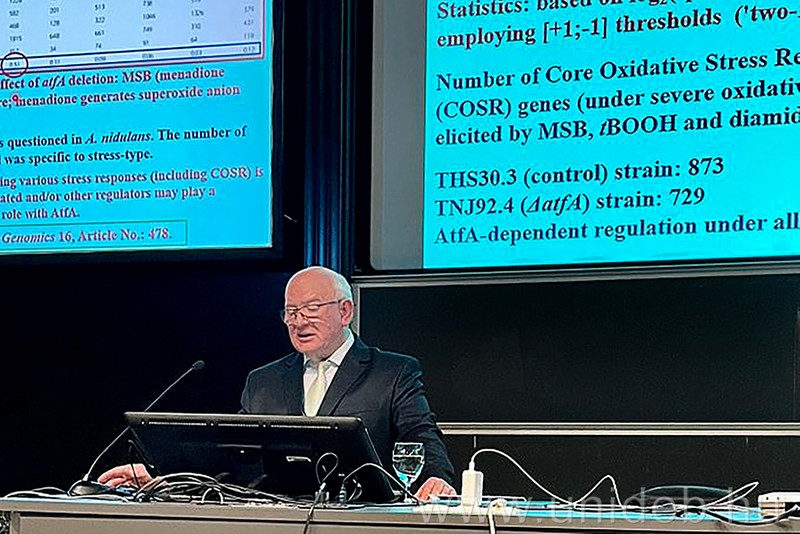At the request of the scientific community dealing with Aspergillus fungi, István Pócsi, head professor of the University of Debrecen, gave a lecture at the Asperfest19 event related to the European Conference on Fungal Genetics (ECFG16). In his presentation, the professor reported on the results of the fungal stress biology research he completed at the university at the professional meeting held in Austria at the beginning of March.
Professor István Pócsi held the Pontecorvo Lecture, the closing lecture of Asperfest19 (International Aspergillus Meeting) in Innsbruck. (The lecture was named after Guido Pontecorvo, a world-renowned geneticist of Italian origin, who made a lasting impression on the structure and organization of genes with his research. He used the mold Aspergillus nidulans as a model organism for his research). The lecturer is traditionally selected by the leading international representatives of the scientific field (Aspergillus Genomes Research Policy Committee). This is also a recognition of his life’s work.
I was very honored to be invited. This is a huge professional recognition of my work so far, but at the same time, it is also inspiring, encouraging me to take on new tasks and achieve new goals. At the University of Debrecen, we have been dealing with fungal stress biology and transcriptomic research for more than twenty years and have achieved significant results in this field. We have established a significant international network, we work together with a large number of foreign specialists, cooperation, constant knowledge sharing, and coordinated research are essential for successful work
– said István Pócsi, head of the department of Molecular Biotechnology and Microbiology of the Faculty of Science and Technology of the University of Debrecen.
The professor explained that their research group primarily investigates adaptation to stress and their stress response system in molds.
For living beings, stress is part of everyday life. This is not necessarily negative, since the reaction to stressful situations and the successful adaptation to them result in new things. The environment also changes rapidly for microbes, to which they must also adapt. We are investigating how this happens with molds. The research goal is to understand and explore this process more deeply
– added István Pócsi.
The research can be important from the point of view of industry and drug development as well. In the case of industrial organisms, the goal is to increase stress tolerance, and in drug development to weaken stress tolerance, for example in the case of molds that make people sick.
Research can go in two directions depending on whether we want to strengthen or weaken the fungi’s stress response. During our investigations, we found several genes that can be used to strengthen the stress tolerance of mushrooms, which may be of industrial importance. Reducing stress tolerance can even lead to the discovery of new drug attack points
– emphasized the professor of the University of Debrecen.
Based on the results achieved so far, the ELKH-DE Fungal Stress Biology Research Group was established with the support of the Eötvös Loránd Research Network, in which the elements of the stress response system are examined from the point of view of what attack points would be possible in the future in terms of the development of antifungal agents. The researchers of the University of Debrecen achieved significant results, among other things, in the discovery of transcription factors that coordinate the stress response system, and in understanding the processes of fungal cell death. In his presentation entitled Omics-based Aspergillus stress biology at the international conference, István Pócsi reported on the results of the studies that have been going on for two decades and also summarized the currently ongoing and planned fungal stress biology research.
unideb.hu


















